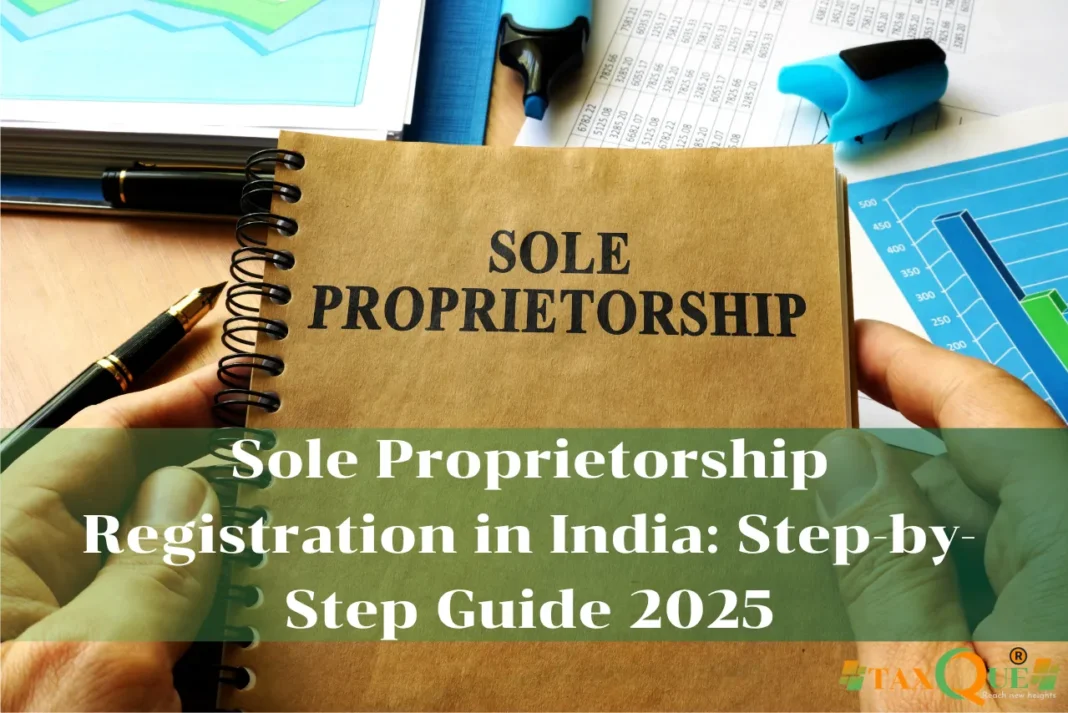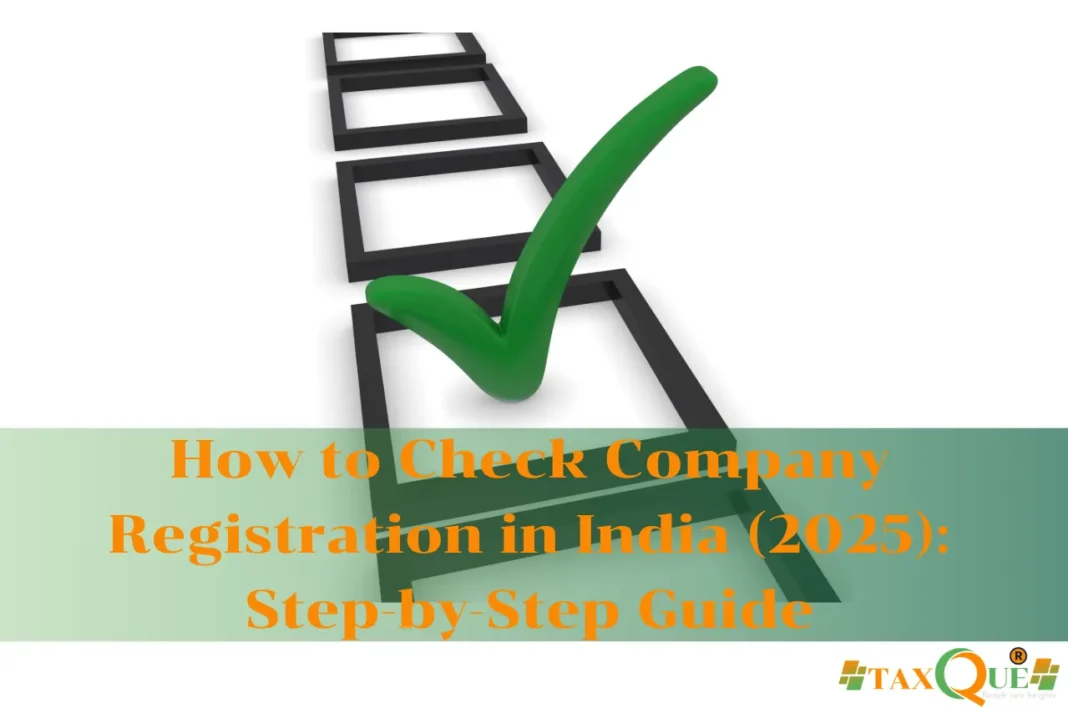Sole Proprietorship Registration in India
Launching your own business in India is a dream many share, and a sole proprietorship is the simplest way to make it happen. It’s suited for solo entrepreneurs, freelancers, local shops, and small-scale service providers, allowing you to start quickly with minimal regulatory hurdles. Here’s your up-to-date and comprehensive guide to sole proprietorship registration in India as of 2025.
Introduction
A sole proprietorship is a business owned and run by one individual, with no separate legal identity from the owner. The biggest advantages? Quick setup, low cost, and full control. With new digital platforms and streamlined online procedures, starting as a sole proprietor in India is easier than ever—if you follow the right steps.
Key Steps in Registering a Sole Proprietorship (2025)
| Step | Details |
|---|---|
| Choose Business Name | Pick a unique, legally compliant name |
| Obtain PAN Card | Mandatory for tax operations |
| Business Address Proof | Ownership (utility bill); For rent: lease + NOC |
| Local License/Shop & Establishment | Register with municipal/local authority |
| GST Registration | Only if threshold crossed or dealing interstate/e-commerce |
| Open Bank Account | Current account in business name, with required proofs |
| Udyam (MSME) Registration | Optional but recommended for benefits/securing loans |
Why Sole Proprietorship Remains Popular
- Easy entry & exit: Minimal legal hoops—register, start, and wrap up operations with little government interference.
- Low compliance: No annual returns to Registrar of Companies, fewer audits.
- Direct control: You make every decision and keep all profits.
- Cost-effective: Registration and running costs are minimal.
- Privacy: No need to publish business accounts or financial statements.
Step-by-Step Registration Process
Step 1: Choose a Business Name
Pick a memorable, suitable name. Avoid names too similar to well-known trademarks or regulated terms. This minimizes the risk of legal trouble and helps with branding.
Step 2: Obtain a PAN Card
If you don’t already have one, get a PAN (Permanent Account Number) in your name. This is critical for taxes, GST, and opening a business bank account.
Step 3: Proof of Business Address
- Owned premises: Utility bills or property documents in your name.
- Rented:
- Rental/lease agreement.
- No Objection Certificate (NOC) from your landlord.
- Both forms may be needed for certain licenses or bank account opening.
Step 4: Shop & Establishment Registration
Register with your state’s Labour Department or local Municipal Corporation online or offline. Most states require this for all commercial establishments—even home-based consultancies.
- Check your local portal or municipal office for region-specific rules.
- Usual documents: PAN, Aadhaar, address proof, passport photo, rent agreement/deed.
Step 5: GST Registration (If Required)
- Mandatory if you cross ₹20 lakh turnover (services) or ₹40 lakh (goods) in a year.
- Also required for inter-state sales or selling via e-commerce platforms.
- Apply online at the GST portal: requires PAN, Aadhaar, business address proof, and a photo.
Step 6: Open a Current Bank Account
Most banks require at least two business proofs, such as Shop & Establishment license and GST certificate. Documentation includes PAN, Aadhaar, business address proof, photographs, and business licenses. A separate current account is essential for credibility and day-to-day business transactions.
Step 7: Udyam/MSME Registration (Optional)
Registering as an MSME (through the Udyam Registration) is voluntary—but highly recommended. You unlock government schemes, subsidies, and better loan eligibility. There’s no extra compliance, and it boosts business legitimacy.
Documents Required (2025)
- Proprietor’s Aadhaar Card, Passport, or Voter ID
- PAN Card
- Proof of Address (utility bills or rental agreement)
- Proof of Business Address (as above)
- Passport-sized photos
- Shop & Establishment Certificate
- GST Certificate (if registered)
- Udyam Certificate (if MSME-registered)
- Special licenses (e.g., FSSAI for food, IEC for exports)
Timeline & Fees
- Registration time: Usually 7–15 days per department if information is accurate and complete.
- Government fees: Shop & Establishment—₹500–3,000 (varies by state); GST/Udyam—free or nominal charges.
Advantages of Sole Proprietorship
| Advantage | Description |
|---|---|
| Quick start | Minimal paperwork; local registration |
| Direct profit | All earnings flow to proprietor |
| Simple compliance | Easy tax filings; fewer regulatory hurdles |
| Full control | Faster decisions; no partner conflicts |
| Easy closure | Wind up by settling debts and closing bank account |
| Privacy | No disclosure of accounts to public |
Compliance Needs
- Income tax: File as individual business income.
- GST: If applicable, file monthly/quarterly returns.
- Labour/local: Maintain licenses, follow other mandatory rules for your sector.
Top Tips for New Sole Proprietors
- Pick your business name with care—avoid infringing trademarks.
- Submit accurate information to speed up approvals.
- Store scanned copies of all licenses and registration proofs for audits.
- Research if your sector needs extra licenses (FSSAI, IEC, etc.).
- Maintain basic accounts and keep bank/business expenses separate for easier tax compliance.
Frequently Asked Questions (FAQs)
Q1. Is formal MCA registration needed?
No. Sole proprietorships are not registered with the MCA. Recognition comes from tax registrations and business licenses.
Q2. Can I get a business loan as a sole proprietor?
Yes—with a current account and Udyam/MSME registration, your business is more credible to lenders.
Q3. When is GST registration a must?
If you cross the turnover threshold (₹20 lakh for services, ₹40 lakh for goods), for e-commerce or interstate supply.
Q4. Do all banks need two licenses for opening a business account?
Usually yes. Shop & Establishment + GST or MSME registration are the most common.
Q5. Is there a certificate for sole proprietorship registration?
No single government certificate exists—combination of PAN, Shop & Establishment/GST/Udyam establishes your business legitimacy.
Conclusion
A sole proprietorship is the quickest route for individuals to turn an idea into a business in India. By getting the right registrations and following compliance steps outlined above, you’ll operate smoothly and tap into bank loans, government schemes, and customer confidence. For help with any step, platforms like TaxQue offer seamless business registration, MSME certification, and compliance services for Indian entrepreneurs.





